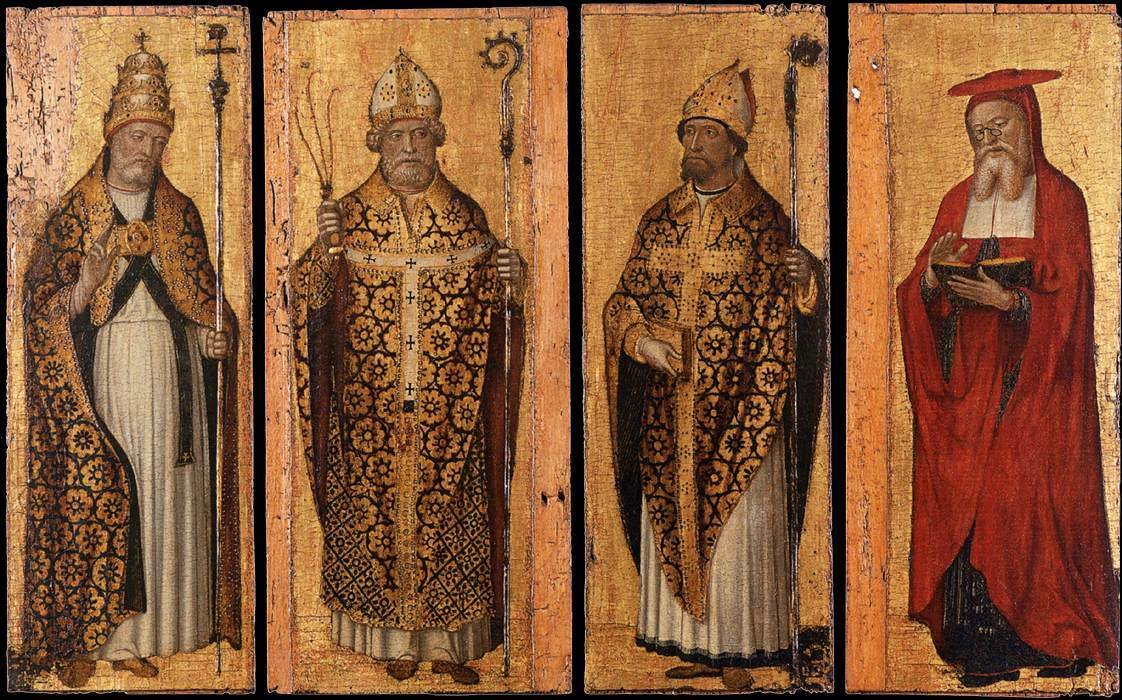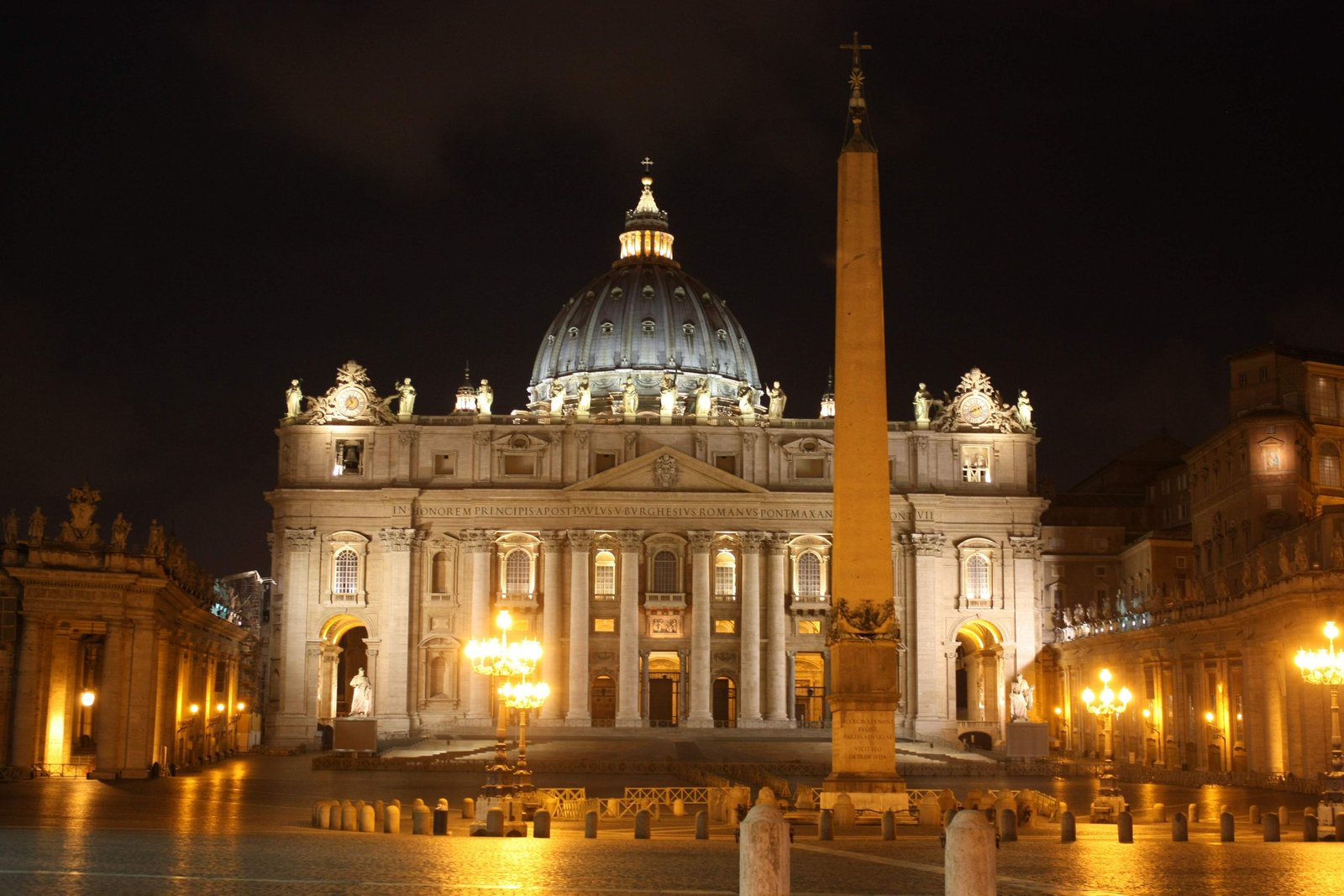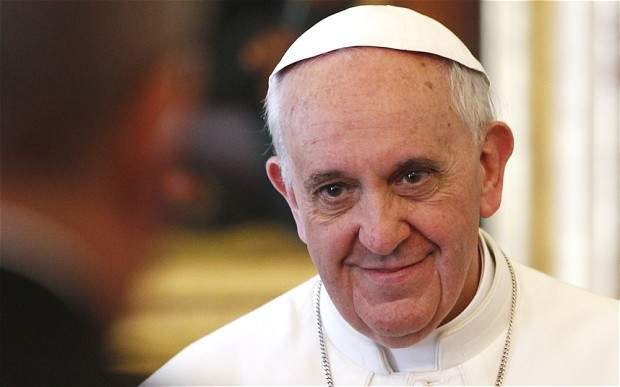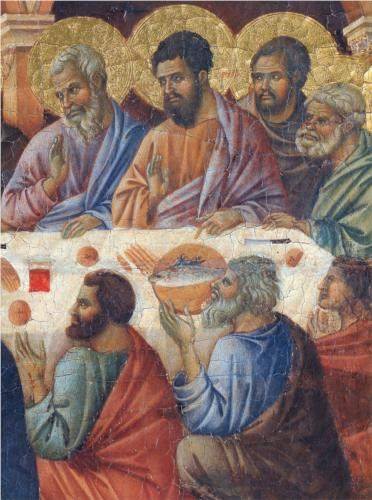This came out of the blue, off the cuff, just as you read it, when a friend on Facebook asked me to sum up in one point why I converted to Catholicism. This is probably the most succinct account you’ll ever read from me.
It’s hard to narrow down to just one. But I’ll give you three: The authority of the teachings, the catholicity and universality of the Church, and the historical continuity with all ages.
The first point, authority: Protestants believe in sola scriptura, that one’s doctrine and authority come from Scripture alone. But that means that ultimately understanding God’s Word is dependent on the individual conscience. It’s up to you to read it and decide what it means. Which left me constantly in the place of feeling lost and unworthy to come to any conclusion. Who was I to say one denomination was right and another wrong, when so many wise and intelligent people had been arguing over it for centuries? How could I have any certainty at all, about anything?
And I really don’t think Jesus would have left us in that pickle. There’s nothing in Scripture to suggest that anyone ever intended that. All through the Old Testament, God anointed priests and prophets and judges and kings to lead and instruct and guide His people. The prophets promised that He would send us shepherds after His own heart. And then, God Incarnate Himself comes! To reveal to us the fullness of divine Truth! And then — we’re left with a book? That we have to muddle through ourselves? It has no continuity with the rest of revelation. It seems completely out of character with God and anti-climactic to the history of salvation.
But from the very first century, even suggested in Scripture, the Church has believed in apostolic succession — the idea that Christian teachings, and the authority to teach them, were passed down from the Apostles to the bishops and down through the ages. That seems entirely more in character, after the succession of Aaronic priests and the Davidic line of kings. Christ told the Apostles that when they spoke, their word would be as His, with all the same authority. And the whole foundation of Catholic teaching is that that authority never went away. There’s still an authoritative Church, guided by the Holy Spirit, with the authority to teach us.
And the second one, the universality: “Catholic” means “universal.” And in Scripture Paul talks repeatedly about us being the Body of Christ, one through our Baptism and through the sharing of the One Bread. And the Catholic Church is spread worldwide, and in any place I could go, it would be the same liturgy, the same belief, the same doctrine — the same One Bread. And there would be brothers and sisters who would welcome me and embrace me. And it’s not just universal around the world — it’s universal through the ages. With all the believers who’ve ever lived. United by that One Bread.
And the Protestant churches have no concept at all of that. There are 40,000+ Protestant denominations, and that’s not even counting “nondenominational” churches. It’s hip not to be affiliated with anybody, just to be a splinter with no attachments to anything bigger and no accountability to any authority.

The Four Doctors of the Western Church: Pope St. Gregory the Great, St. Ambrose, St. Augustine, and St. Jerome.
And the third one, you get: Historical continuity. Both in terms of events and in terms of doctrine. Everything the first century Church believed, we believe today. Everything we believe today, the first century Church had at least some notion of. And all the events, all the developments, all the heroes and saints and brothers and sisters, are connected. Whereas for most Protestants, history began from nothing in 1517. They can’t explain where their faith came from, other than point to the Bible. But how did the Bible come to them?
I was thinking yesterday: Protestantism is the ultimate reboot. Like with Batman or Superman or Star Trek, they decided they didn’t like how the story was going, so they took the original source material and started over, re-reading it all in a new light and re-inventing it how they wanted it. With no connection at all to anything that had happened before.






